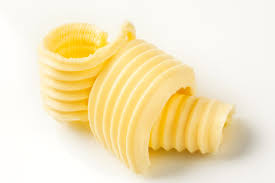 For decades we have been told that we eat too much saturated fat and we should be increasing the amount of polyunsaturated fats in our diet to harvest their health benefits. It certainly looks like we have succeeded because the average American now consumes around 40g of polyunsaturated fats a day in comparison to just 20g in the 1950’s.
For decades we have been told that we eat too much saturated fat and we should be increasing the amount of polyunsaturated fats in our diet to harvest their health benefits. It certainly looks like we have succeeded because the average American now consumes around 40g of polyunsaturated fats a day in comparison to just 20g in the 1950’s.
According to this wisdom, our heart health policy should have been successful but, instead, nearly every condition related to chronic inflammation is on the rise.
Up until the early parts of the last century we cooked with traditional saturated fats such as butter and lard. As it turns out, this was a very wise and natural choice because saturated fat is very stable at high temperatures. It does not contain double bonds in its chemical structure, making it much more resistant to oxidation and damage.
In the sixties the first hydrogenated or trans fats in the form of margarine became popular. It became the spread and cooking oil of choice. Hydrogenated fats only began to be frowned upon in the 21st century. These artificial, chemically altered fats carry so many health hazards it is almost hard to believe that they were ever approved as fit for human consumption.
Now even the medical profession disapproves of trans fats as LDL cholesterol levels have drastically increased. But supermarket shelves are still full of plant-based spreads, manufactured from highly processed vegetable oils largely containing processed polyunsaturated fats. And avoiding these fats is not just as easy as abstaining from margarine and cooking oil. Nearly every cookie, pastry, microwave dinner, ready meal and packaged food will contain these solidified vegetable oils.
Unfortunately, at present, NOBODY KNOWS what these fats might do to the human body. Another interesting bit of evidence comes from rural China. Women who spend a lot of their time stir-frying with linseed or rapeseed oil have a considerably high risk of developing lung cancer. Responsible for this dramatic side effect are the toxic fumes produced by heating polyunsaturated vegetable oils.
Due to their chemical structure, they are highly unstable and vulnerable to oxidation. These oxidation by-products are highly inflammatory and damaging to healthy cells. In truth, processed plant oils are a much greater risk factor for heart disease, diabetes and cancer than any amount of butter or lard will ever be.
Cheese, butter and animal fat should not be avoided. Butter is rich in vitamins A, D, E and K, all of which promote heart health and improve blood viscosity. Conjugated linoleic acid (CLA) is found in abundance in butter and shown to help maintain a healthy weight and protect against cancer. Many compounds in butter may also help to combat arthritis, infertility and even asthma. The saturated fat helps to strengthen lung tissue and butyric acid provides soothing and antibacterial protection for your small and large intestine.
Natural, saturated fats like butter and other animal fats have been used safely as long as man has had access to them and should form part of every healthy diet. For those who wish to avoid produce of animal origin, coconut oil is an excellent alternative. Rich in saturated fat, it is stable enough to cook with.
Reference:
Lola Renton
http://igennus.com/
